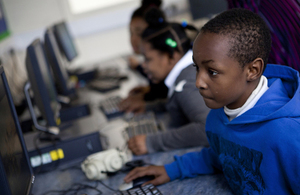Getting your kids to tidy up after themselves is certainly a never-ending battle. In fact, teenagers and older kids are often much worse than younger children, so encouraging tidiness early on will help set up good habits. Here at Tutor Doctor we know encouraging great habits like this is much easier said than done. That’s why we’ve come up with a few simple and straightforward methods for you to encourage your children to be tidy and stay that way!
Set a good example
Children are often much more sensitive to what we do rather than what we say. That’s why setting a good example when it comes to tidying up after yourself is vital, especially if you want them to adopt the same habits. Taking pride in looking after your home and keeping your belongings in order will increase the odds that your kids will have a positive attitude towards doing the same. Showing them how it’s done and letting them know you expect the same too, will help tidiness become the norm!
Clearly define expectations
Letting your kids clearly know specifics in regards to tidiness expectations makes it much easier for them to understand and follow. Break it down into easy rules- here’s an example of a few:
- Make your bed every morning
- Put dirty washing in the laundry pile
- Hang up clean clothes
- Put all toys away after playtime
- Put dirty dishes in the sink/dishwasher
- Throw rubbish/empty packets in the bin
Make sure everything has a place
Making sure that everything in your house has a place will help hugely when it comes to your kids staying tidy. If they know exactly what lives where, then when they use something they’ll be more inclined to return the item to its ‘home.’ When items just live in piles or don’t have a specific place then it’s easy for clutter to build and can confuse your child as they don’t know where to put away things once they’ve used them.
Teach them how to care for their belongings
Teaching your kids to care for their own things is going to help them be more respectful towards them. This means notions of putting things away after using them will become second nature- meaning no more mess!
Reduce the number of toys
We guarantee your child has accumulated way too many toys over the years, meaning more items to leave out and more to tidy away! Try having a clear out and going through of all of their toys, games and books. Let your kids only keep the items they truly love and give the rest away to charity. We bet they’ll still have more than enough to play with and activities to do- there just won’t be as much clutter.
Stick to a routine
Establishing and sticking to a routine is a great way to encourage tidying. Start by making sure your child tidies away all their toys, books and anything else they’ve been doing before they eat dinner or go to bed. Other easy practices include putting dirty clothes in the laundry when they get changed into their pjs, clearing up empty packets and wrappers after eating something and putting books and papers back onto the bookshelf or desk when they’ve finished their homework. All of these easy routines will be sure to set up great tidying habits for life.



